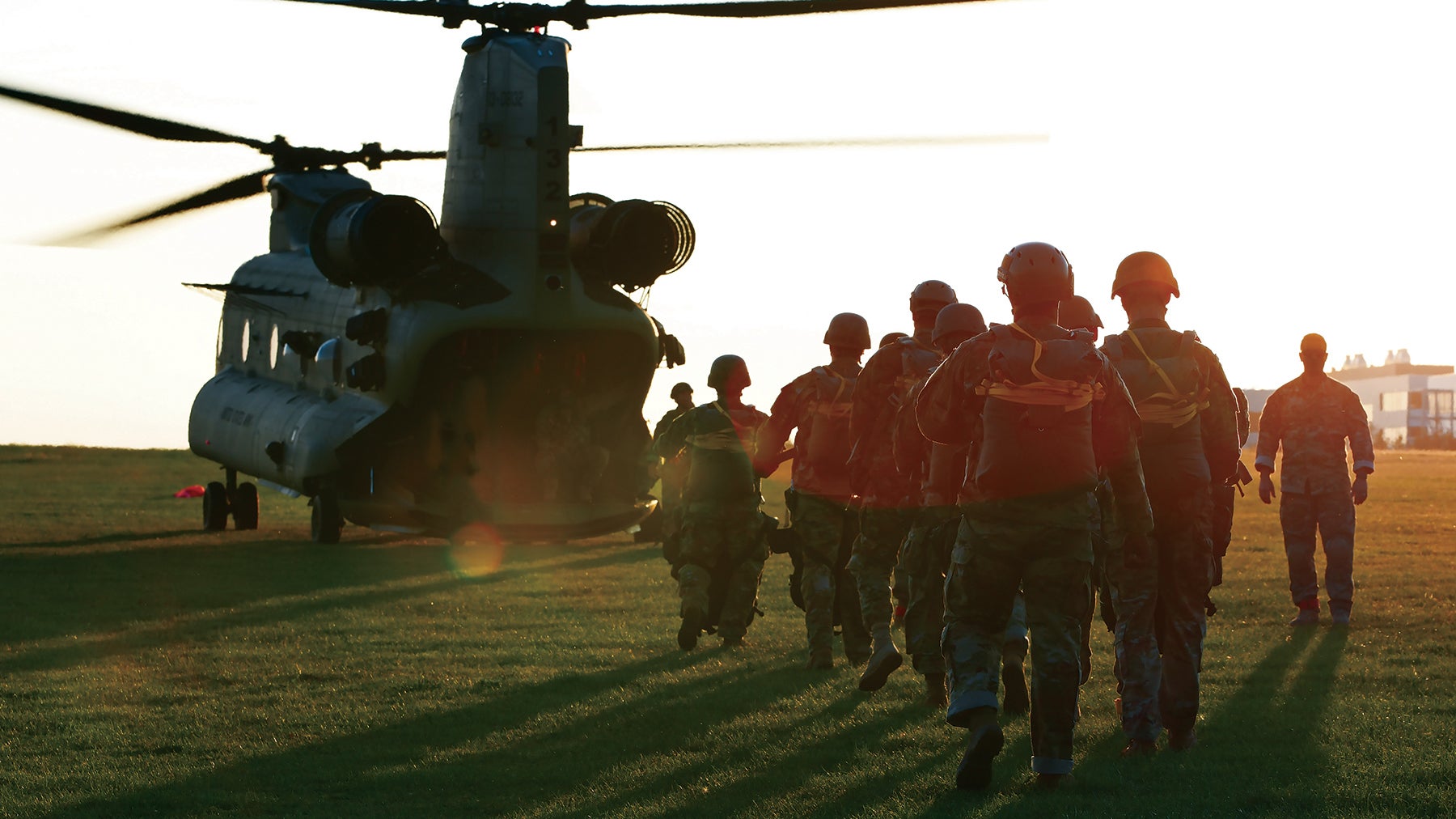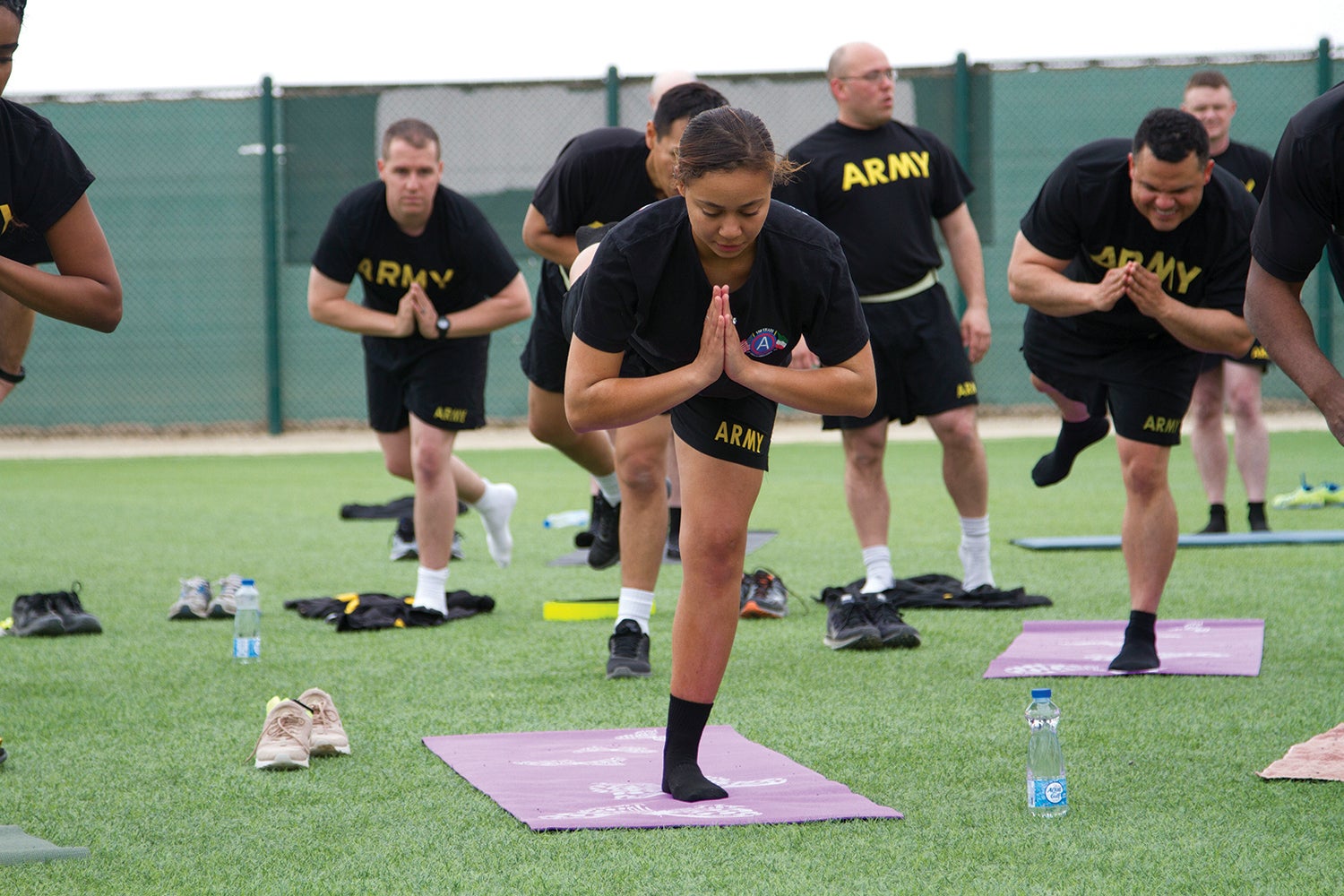When soldiers join the Army, they are bombarded with information about what it means to be a soldier. They master myriad technical details, learn Army procedures and absorb Army culture. While they can master the skill of standing at attention, they are not taught how to pay attention, despite the fact that paying attention is critical during large-scale combat operations.
Paying attention—being present in the moment and fully focused on the now—is a capability that can make the difference between good decisions and great decisions. During multidomain operations, improving attention can literally mean the difference between life and death. Without this focus, soldiers are limited to reacting, their minds always somewhere else and never on the task at hand.
Yet soldiers are not routinely trained in the strength that comes from doing nothing. Not the kind of “nothing” that translates into playing video games or hanging out with friends, but the kind of doing nothing that entails a sophisticated mental effort when soldiers focus on the moment, without judging themselves or others and without being distracted by what might have happened or what might happen.
In the Moment
There is a term for this kind of focus: mindfulness. Being mindful is recognizing that the most important task you are doing right now is to be present and to be physically and mentally in the moment. Rather than focus on what you are going to say next or what is on your to-do list, being mindful allows you to experience the moment. This kind of focus is powerful for soldiers and for leaders. Training soldiers to be in the present not only leads to improved decision-making but also leads to improved performance, similar to an athlete who is performing “in the zone.”
Mindfulness training helps the brain strengthen attention and working memory. Studies have documented the way in which mindfulness can support health, cognitive functioning and performance. Professional athletes and sports teams have integrated mindfulness into their training regimens, and studies showing the effectiveness of mindfulness have been conducted with Special Forces units.

A Walter Reed Army Institute of Research study led by Capt. Thomas Nassif, deputy director of the Research Transition Office in the institute’s Center for Military Psychiatry and Neuroscience, found that soldiers from operational units scored at least 20% higher on weapons qualification and marksmanship under stress if they practiced mindfulness on a regular basis compared to those who did not. The as-yet-unpublished study also reported fewer cognitive lapses—errors that could be critical in a high-stakes context.
There are also different ways to learn about mindfulness—from training courses on mindfulness to mindfulness apps to mindfulness retreats. Mindfulness practices vary. For example, some practices focus on monitoring inner experience, some practices focus on outward experience, and some practices focus on connection and compassion.
Compassion matters, because if we are to achieve the mission or succeed with a team, we must understand the environment, the people and their struggle. The underlying ingredient across these practices, however, is learning to be present, and this lesson can be significant on both a personal and professional level.
Calm Amid Chaos
On a personal level, mindfulness can help soldiers be more present with their families. Rather than focus on the next email, next tasker or next deployment, mindfulness can help keep soldiers grounded in the moment, connecting with the people they love.
Not only can this heightened focus enrich personal relationships, it can also be an asset for leaders. The challenge for leaders is to be calm when things are chaotic. It is something leaders try to train for by creating a chaotic environment and forcing people to react.
While it is important to train in this way, it is also important to train leaders how to take a step back. Without this skill, leaders learn how to function while their minds are overloaded, but they do not learn how to function optimally.
These skills are important for kinetic environments, in which there are many demands on attention, and the consequences of misdirected attention can be life-threatening. Mindfulness helps with the needed skills to navigate multidomain operations. Yes, multidomain operations will require sophisticated technology, but while technology enables maneuver, cognitive and emotional skills will remain the foundation of success. Clear-thinking humans cannot be removed from the equation. During multidomain operations, soldiers must be able to integrate information from many domains and be able to see things for what they are, not for how they are trained to see them; no amount of technology will be able to do that.
Through most of our technology, everything can look like a target, but leaders must be able to discern if it is or is not. To be able to pay attention in that moment, to see the complexity and be able to discern what is and is not a threat, remains a basic skill that soldiers must acquire. It is one thing to be good with a weapon; it is another thing to know when not to use it. Both skills are vital for soldiers who have a split second to decide.
Mindfulness practices that exercise the mind give you the skills to be at your best, at your clearest when things are at their worst. In the Walter Reed Army Institute of Research mindfulness study with operational units, for example, soldiers who practiced mindfulness were able to perform better on marksmanship tasks after performing intense physical exercise, demonstrating the importance of practicing mindfulness in gaining a performance edge under stress.
Regular Practice Required
The science behind mindfulness shows mindfulness is effective when it is practiced on a regular basis. So, just like physical training, training your brain needs to be integrated into your daily life. The more hectic your life, the more pressures on your time, the more important mindfulness practice is.
The good news is that mindfulness can be embedded into regular habits, like adding it to a cooldown routine or while lacing your boots. Take a few minutes and engage in a mindfulness practice. It is not nearly as easy as it sounds. And that challenge of practicing mindfulness makes it worth doing. Just like strength training and lifting weights, improved performance only occurs if the activity is challenging. Rushing through it or skimping on practice is not likely to be effective. Estimates based on research suggest that improvements in performance skills occur as a result of practicing about 12 minutes a day, three to four days a week.

Moments of mindfulness can also occur in the middle of the day, like taking mindful walks, or taking a moment while sitting at your desk, or taking a moment to focus your attention before a meeting begins. Taking that pause—taking that moment—to focus the mind can make a better-prepared leader, one who is ready to listen and consider options more deeply, especially under stress.
The Army is experiencing a watershed moment in its relationship to mindfulness. Not only have recent studies with operational units documented the benefits of mindfulness practice for military performance, but two new studies have been prioritized that offer bookends to the question of how the Army can best integrate mindfulness. The first study, requested by Gen. Paul Funk, commander of the U.S. Army Training and Doctrine Command, is examining the impact of mindfulness on soldiers going through basic combat training.
By combining mindfulness and yoga, this large-scale pilot study will provide empirical evidence to guide decisions about how mindfulness might be introduced to soldiers as they launch their Army career. In the second study, the U.S. Army War College is working with the Walter Reed Army Institute of Research to determine the impact of mindfulness training on senior Army leaders, including general officers and command sergeants major.
Together, these studies will help inform how the Army rolls out mindfulness and how mindfulness may be integrated into training throughout a soldier’s career. Mindfulness may offer a way to shape the future of Army training.
Outgoing Defense Secretary Mark Esper wrote, “Stay focused on your mission, remain steadfast in your pursuit of excellence, and always do the right thing.” Clearly, we need to do more than teach soldiers how to stand at attention; we must teach them how to pay attention and focus. Mindfulness is an empirically supported practice that has the power to build soldiers as individuals, teammates and leaders.
* * *
A Quick Guide to Mindfulness
The mechanics of mindfulness do not have to be mystifying. In a Walter Reed Army Institute of Research Mindfulness Quick Guide, Capt. Thomas Nassif, deputy director, Research Transition Office, in the institute’s Center for Military Psychiatry and Neuroscience, and Amy Adler, senior scientist at the Center for Military Psychiatry and Neuroscience, summarize recommendations for getting the most out of the practice and provide concrete examples of mindfulness exercises.
The Quick Guide includes a basic and more advanced example of mindfulness practice, addresses frequently asked questions and provides suggestions for integrating mindfulness every day.
An example of a foundational mindfulness exercise is provided below, followed by tips for engaging in mindfulness practice.
Mindfulness Exercise
• Take a moment to get comfortable.
• Feel free to close your eyes.
• Settle in and let go of any unnecessary tension in your body and mind.
• Take three deep, slow breaths; let your breathing return to its normal pace.
• Focus your attention on where in your body you feel the breath most.
• Notice when your mind wanders away from this target, then return it gently back to the sensation.
• Practice this exercise for two to three minutes.
• Gently bring movement back into hands and feet as you complete the practice and return to everyday life.
Making Mindfulness Work
• Accept what comes up without judgment.
• Be patient with yourself as your mind wanders.
• Mind-wandering is normal and expected—just bring your attention back to your breath.
• Let go of trying to do mindfulness.
• Strike a balance between alertness and relaxation. Some effort is needed to sustain attention, but too much can hinder your practice.
To download a copy of the Quick Guide, go to: https://www.wrair.army.mil/sites/default/files/2020-05/COVID-19_Mindfulness_Quick_Guide_WRAIR.pdf
* * *
Lt. Gen. Walter Piatt is the 57th director of the Army Staff. He has served in the Army for 37 years.
Col. Deydre Teyhen is the 20th chief of the Army Medical Specialist Corps and the deputy lead for therapeutics, Operation Warp Speed. Previously, she served as commander of the Walter Reed Army Institute of Research, Silver Spring, Maryland.
Amy Adler is the senior scientist at the Center for Military Psychiatry and Neuroscience, Walter Reed Army Institute of Research. She is a clinical research psychologist.

